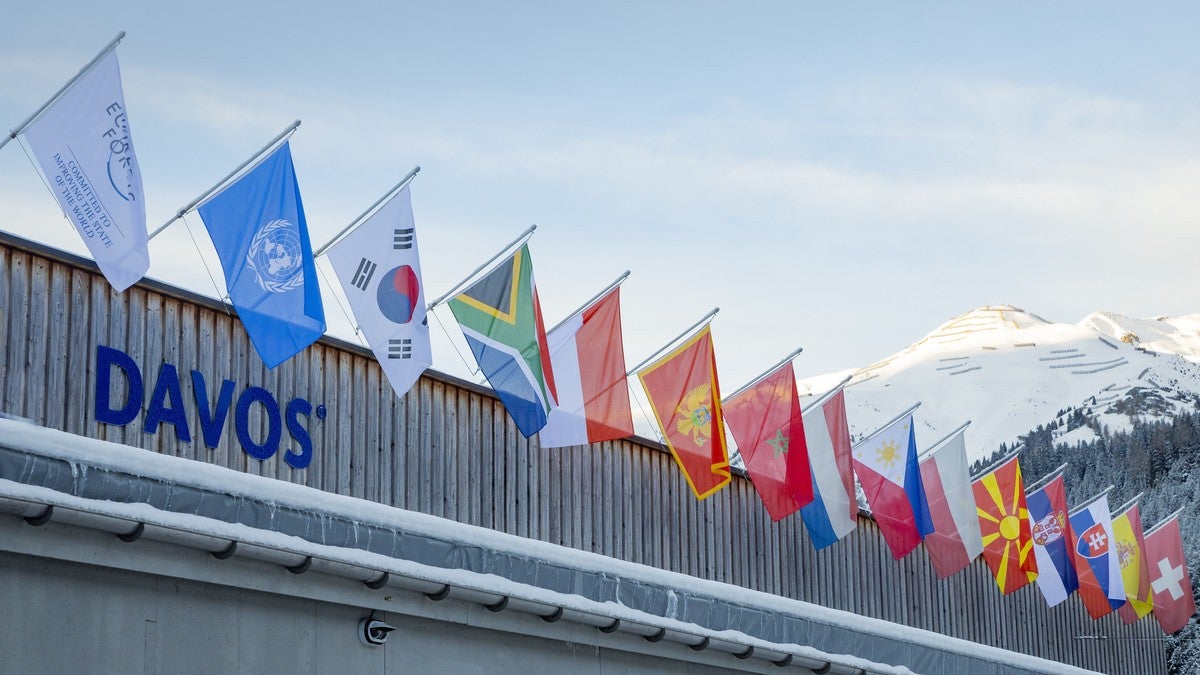
In a year where more than half of the global population will head to the polls, disinformation around elections created and spread by artificial intelligence (AI) poses the largest threat to the world in 2024, according to a report published by the World Economic Forum (WEF).
Widespread concern has been expressed by analysts, politicians and business figures about AI’s unhindered capacity to polarise electorates during the biggest election year in history.
With elections due to be held across India, Mexico, Taiwan, the UK, US and Europe, the report claimed that AI-driven disinformation will be a more significant threat than climate change, conflict, or economic fragility.
The WEF, an NGO that aims for collaboration between economic and political leaders, released the Global Risks Report 2024 ahead of this year’s summit in Davos, Switzerland, which takes places from 15 to 19 January.
Taiwan election rampant with disinformation
Before the likes of French President Emmanuel Macron and China’s second-in-command Li Qiang fly to Davos, all eyes were on Taiwan’s election on Saturday (13 January).
Taiwan’s elections were of outsized global importance for an island of just 23.5 million people, according to Amelia Connor-Afflick, Senior Analyst at GlobalData.
How well do you really know your competitors?
Access the most comprehensive Company Profiles on the market, powered by GlobalData. Save hours of research. Gain competitive edge.

Thank you!
Your download email will arrive shortly
Not ready to buy yet? Download a free sample
We are confident about the unique quality of our Company Profiles. However, we want you to make the most beneficial decision for your business, so we offer a free sample that you can download by submitting the below form
By GlobalData“Taiwan’s elections faced Chinese-influenced disinformation campaigns as Beijing sought to prevent the reelection of the Democratic Progressive Party (DPP) under Lai Ching-te,” Connor-Afflick told Verdict.
The incumbent DPP, which retained office with 40% of the vote, has always promoted Taiwan’s distinct identity from China and rejected the one-China principle.
Beijing-propagated disinformation aimed to boost electoral prospects of the centre-right Kuomintang (KMT) party, which ruled Taiwan as a dictatorial one-party state until the 1990s and negotiated the one-China policy.
On 21 December, Taiwanese authorities arrested Lin Hsien-yuan, a journalist working for a fringe outlet called Fingermedia who published a fraudulent poll claiming the China-friendly KMT candidate was on track to win the presidential election.
“China-linked trolls spread lies about the illegal construction of Lai Ching-te’s family home, added to false accusations his DPP political party is working with the U.S. to create a Covid-style bioweapon, and flooded the Facebook page of current president Tsai Ing-wen with anti-DPP comments”, Connor-Afflick added.
AI-generated videos, images, and audio clips have featured at the forefront of disinformation campaigns in this election cycle.
In December, a YouTube account called “Eat Rice, No War” put out a deepfake video alleging Lai had three mistresses, according to Taiwan's Ministry of Justice.
Such methods of personality assassination may seem relatively innocuous in isolation, but the overarching impact casts doubt over the reliability of news, a necessity for a healthy democracy.
AI disinformation a bigger threat than war?
The WEF’s report surveyed more than 1,400 global risk analysts, policymakers, and industry figures about their biggest global concerns in September 2023.
It is arguable that war would have been ranked higher by participants should the survey have been carried out after Hamas’ attack on 7 October.
The subsequent Israeli bombardment of Gaza has led to wider conflict across the Middle East, with militant groups in Yemen and Lebanon declaring war on Israel.
Red Sea shipping lanes have been particularly disrupted by the Yemeni Houthis’ hijackings and attacks, to the extent that US and UK naval forces have intervened – and on Friday (12 January) hit Yemen with airstrikes.
But analysts have pointed at the power of AI-driven disinformation to disrupt democratic processes by replacing moderate heads of state with populist or authoritarian leaders.
“Misinformation pollutes information environments and sews distrust in established institutions” Connor-Afflick told Verdict. “It breeds fertile ground for populist leaders to take advantage of aggrieved groups in society – threatening rights, freedoms and quality of life.”
Attention now switches to Davos, where leaders in government, civil society, business and academia will be expected to address the AI question in some detail.
Initiatives such as the Coalition for Content Provenance and Authenticity, founded by Microsoft, ADOBE, ARM, the BBC, Intel and Truepic, show promise.
But as the 2024’s mass voting progresses, there is mounting pressure on governments and multibillion corporations to impose safeguards on AI’s electoral disinformation.







